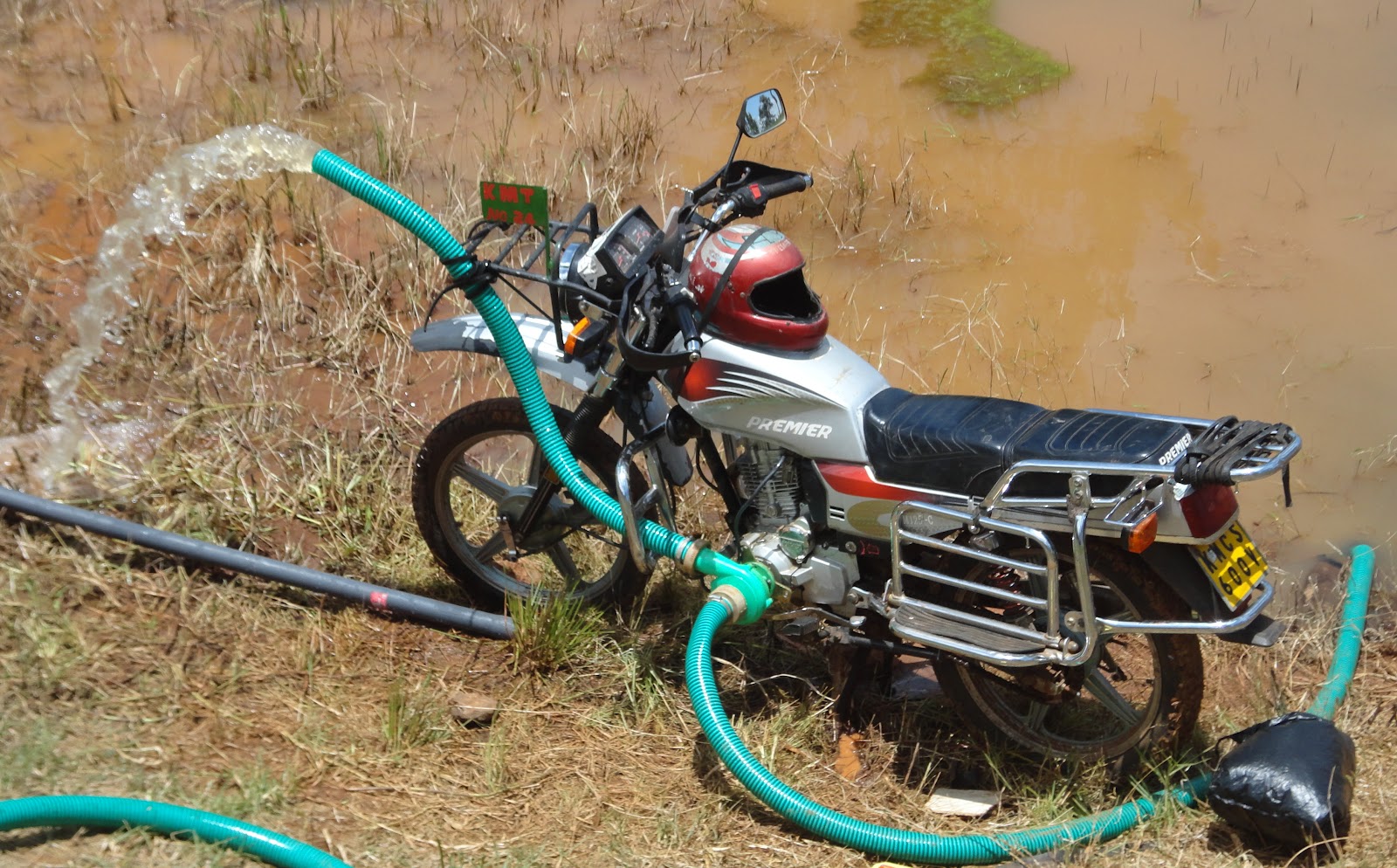
A simple pump operated by a motorbike is the latest innovation for farmers keen on irrigation due to its cost effectiveness with the pump using one litre of petrol to push 40,000 litres of water to a height of 50metres.
This is a sharp contrast with the existing fuel guzzling pumps that have been beyond the reach of majority of the smallholders. Inventors of the motorbike powered pump rode on the frenzy that the bikes are enjoying in East Africa with over 1.5 million motorcycles usually operating as taxis transporting passengers and goods especially in the rough terrains.
While researchers and developers have been mulling the idea of taking the motorcycle use to whole new levels and especially economic fronts one company FarmLink Africa took the leap of faith in developing the pump.
Related News: Double digging irrigation multiplies vegetable yield
The pump is welcome news to thousands of smallholder farmers who are buffeted by vagaries of weather but cant still afford irrigation technologies due to the cost factor. The pump costs Sh10,000 with an extra Sh5,000 for buying the pipes.
The pump requires a litre of petrol to push 40,000 litres of water to a height of 50metres. With a flow rate of 40- cubic metres and quick assembling, the pump can be installed on the motorcycle at night to operate as a sprinkler. It can also be used to pull water from a well into a tank for use in drip irrigation.
The pump is becoming a favourite among households due to its multiple uses. While it is primarily meant for spraying crops and livestock it is becoming increasingly useful in domestic use like in cleaning carpets. More economical use of fuel compared to conventional diesel pumps, low maintenance costs and low labour requirement make it suitable for small holder farmers.
“Anyone who has tried any form of irrigation knows how important this new pump is. There are instances where we farmers have been forced to pull water from wells or draw them from rivers, a very involving process.
The cost of diesel for the other advanced pumps is beyond reach for most of us farmers. We are diversifying into horticulture because that is where the money is, but the water demand by these crops is so much. That is why such an innovation comes in handy,” said Agatha Wambito a smallholder horticultural farmer in Kieni Nyeri.
Over 80 percent of vegetables consumed in the country are produced by smallholder farmers, who have less than 1.5acres of land. Irrigation has been critical in ensuring continuous supply of vegetables even in the dry season.
A report by The International Water Management Institute (IWMI), identified small scale irrigation is the key to a near tripling of sub-Saharan Africa's yields. According to the report, Water for wealth and food security: Supporting farmer-driven investments in agricultural water management, expanding the use of on-farm water management techniques could increase yields up to 300 per cent in some cases, and add hundreds of billions of shillings to household revenues across sub-Saharan Africa.
Related News: Irregular irrigation causes splitting in tomato farming
Related News: Drip irrigation allows farmers save 50% in water costs
“Inexpensive water pumps and new ways of powering them are changing what it means to farm all over Africa and Asia. Even by using simple tools for drilling wells and capturing rainwater, many smallholders can now grow more crops in the dry season, a tremendous help in meeting their bottom lines. Therefore, there is a need for strategic public investment in these proven profitable initiatives by smallholder farmers to expedite their escape from poverty traps,” read the report.
Write comment (0 Comments)
















